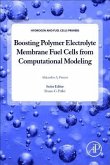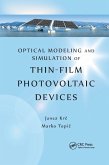Modeling and Numerical Simulation of Proton Exchange Membrane Fuel Cells: Concept, Methods, and Challenges provides a concise guide to the modeling of PEM fuel cells. The book offers detailed methodologies, codes, and algorithms on every aspect of PEM fuel cells, from cold start to degradation. Chapters cover the development, basic principles, and components of PEM fuel cells, discuss the transport phenomena and mathematical formulation of macro-scale PEM fuel cell models, single cell and stack-level models, and model validation, and explain multi-phase transport modeling in PEM fuel cells, including different multiphase models like flow in gas flow channels, porous electrodes, and multi-phase model validation. The book also addresses multiphase mixture formulation, finite-volume, direct numerical simulation, Lattice Boltzmann, and pore network models, along with a section on modeling the cold start process of PEM fuel cells, including the non-isothermal transient cold start model, reduced-dimensional transient model, and the impact of different parameters on the cold start performance. Final sections cover the degradation and lifetime modeling of PEM fuel cells, including stress-induced degradation mechanisms, physics-based and data-driven modeling methods, and coupled performance-degradation models. Finally, recent progress on multi-scale and multi-dimensional modeling of PEM fuel cells, including micro and nano-scale modeling and multi-scale coupled models, is covered.
Hinweis: Dieser Artikel kann nur an eine deutsche Lieferadresse ausgeliefert werden.
Hinweis: Dieser Artikel kann nur an eine deutsche Lieferadresse ausgeliefert werden.








